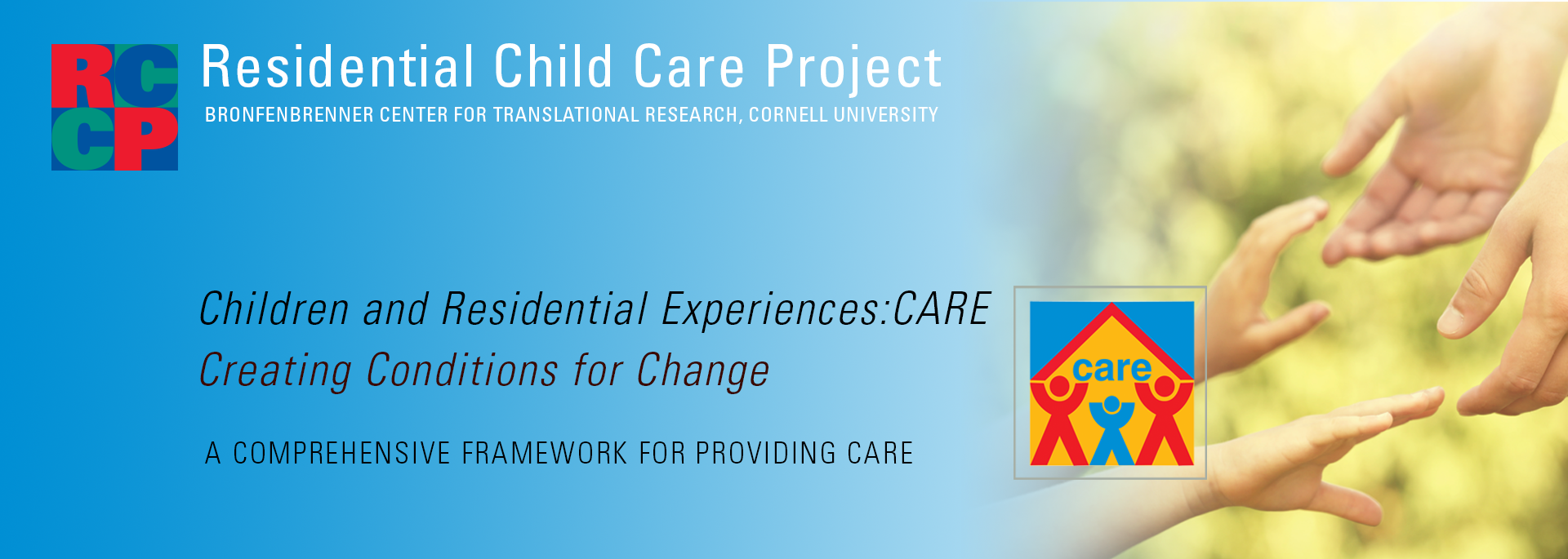

To learn more about the RCCP's CARE Model, read Martha Holden's book, CARE: Creating Conditions for Change. To order the book now, click here; it may also be ordered from the Child Welfare League of America. It is also availalable as an audio book. Click here to order.
The CARE model is a principle-based program model that provides organizations a framework for practice based on a valid theory of how children develop. It motivates children and staff to adhere to routines, structures, and processes while minimizing the potential for interpersonal conflict.
The six principles that form the foundation of CARE are:
- developmentally focused
- family involved
- relationship based
- competence centered
- trauma informed
- ecologically oriented
The implementation of these principles to achieve congruence in the best interests of children throughout all levels of a residential care organization is the goal of the CARE program model.
Implementing the CARE model requires commitment and change from all levels of an agency including staff, supervisors, managers, and administrators.
Cornell CARE consultants collaborate with the agency in all aspects of implementation.
Implementation is a 4-year collaboration between the RCCP and the new CARE organization.
Decreases in behavioral incidents

Improved quality of relationships between children and staff

Decreases in the use of psychotropic medicine

Decreases in the use of physical restraints
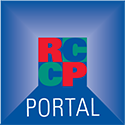

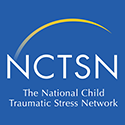



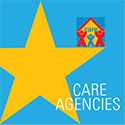
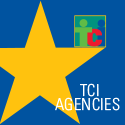





How was CARE developed?
In 2005, the South Carolina Association of Children's Homes and Family Services, the Duke Endowment, and the South Carolina Department of Social Services partnered with Cornell University to develop a competency-based curriculum based on best practices and current research to support strong programmatic elements in residential care.
What is the evidence for CARE?
Several studies completed since 2009 demonstrate that staff CARE-consistent knowledge, beliefs, and practice increase, serious behavioral incidents and the use of physical restraints decrease, and child perceptions of the quality of their relationships with staff increase when CARE is implemented. For more information see the Evidence-base for CARE.
CARE is Listed as a Promising Research Evidence-Based Model
The Children And Residential Experiences (CARE) program is listed as a Promising Research Evidence based model by the California Evidence-Based Clearinghouse for Child Welfare (CEBC). Click here to view the the listing.
Where is CARE used?
CARE has been successfully implemented in organizations throughout the United States, Canada, Ireland, and Australia. The RCCP has offered CARE since 2007.
Who is the intended audience for CARE?
Residential child care agencies and organizations providing services to children and families.
When you plant lettuce, if it does not grow well, you don't blame the lettuce. You look for reasons it is not doing well. It may need fertilizer, or more water, or less sun. You never blame the lettuce. Yet if we have problems with our friends or family, we blame the other person. But if we know how to take care of them, they will grow well, like the lettuce. Blaming has no positive effect at all, nor does trying to persuade using reason and argument. That is my experience. No blame, no reasoning, no argument, just understanding. If you understand, and you show that you understand, you can love, and the situation will change.
—Thich Nat Hanh, Vietnamese Monk